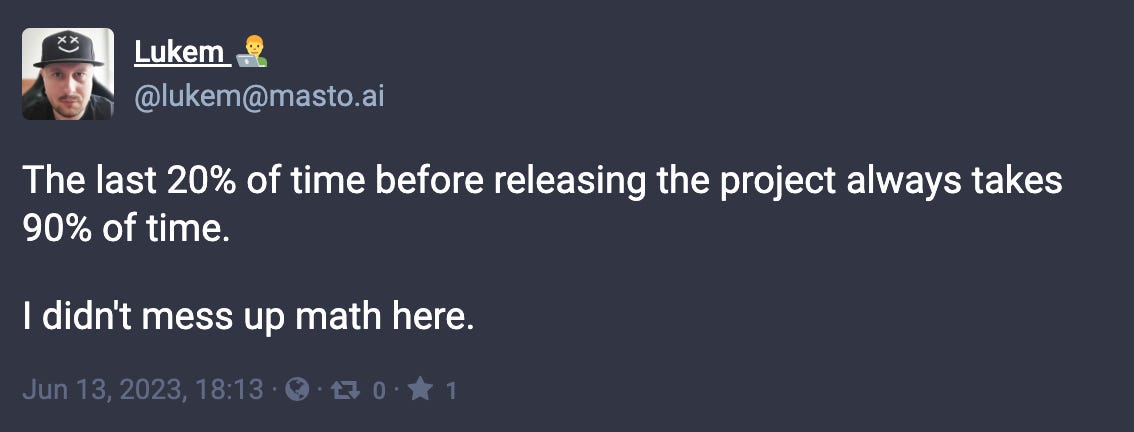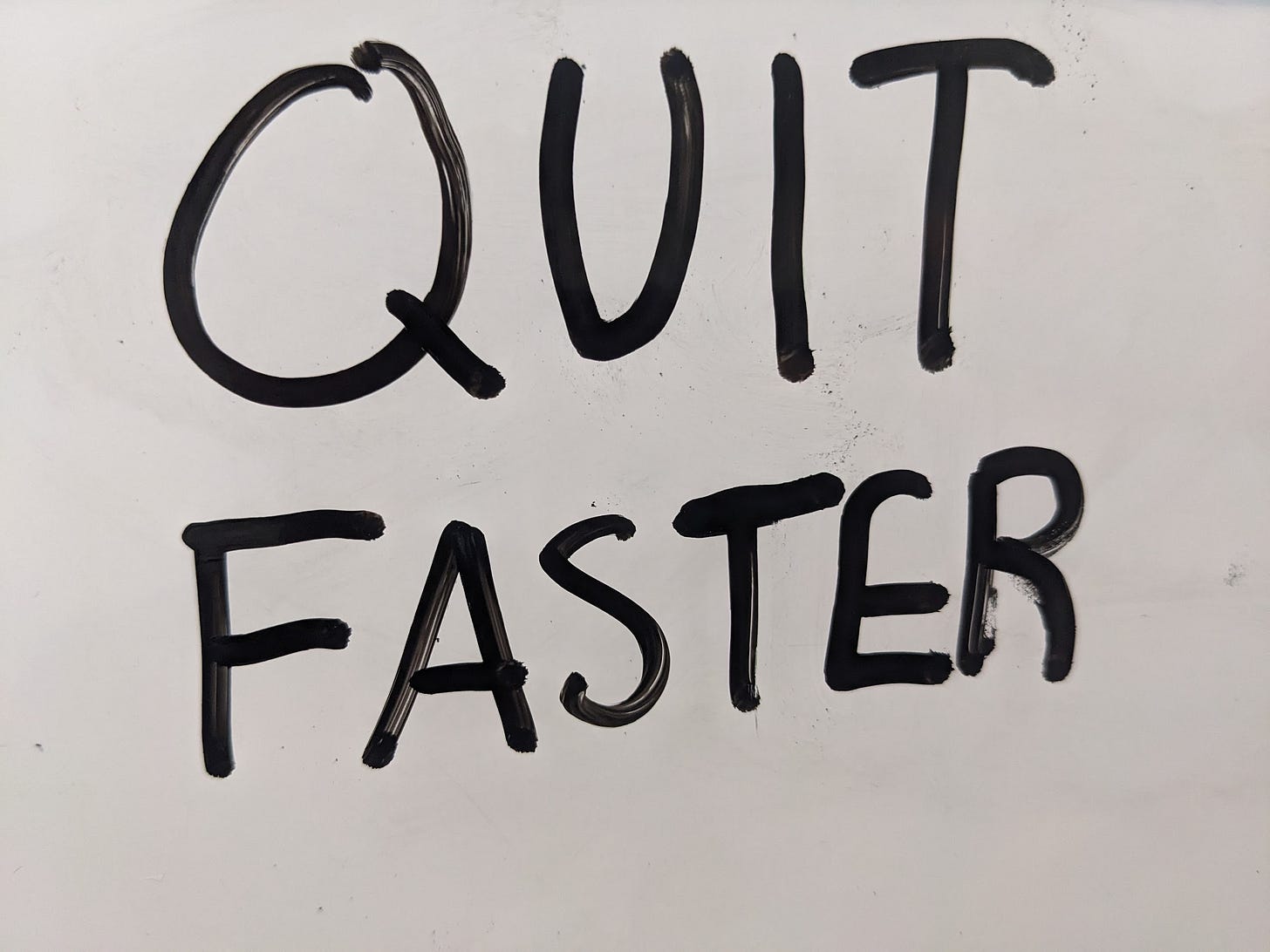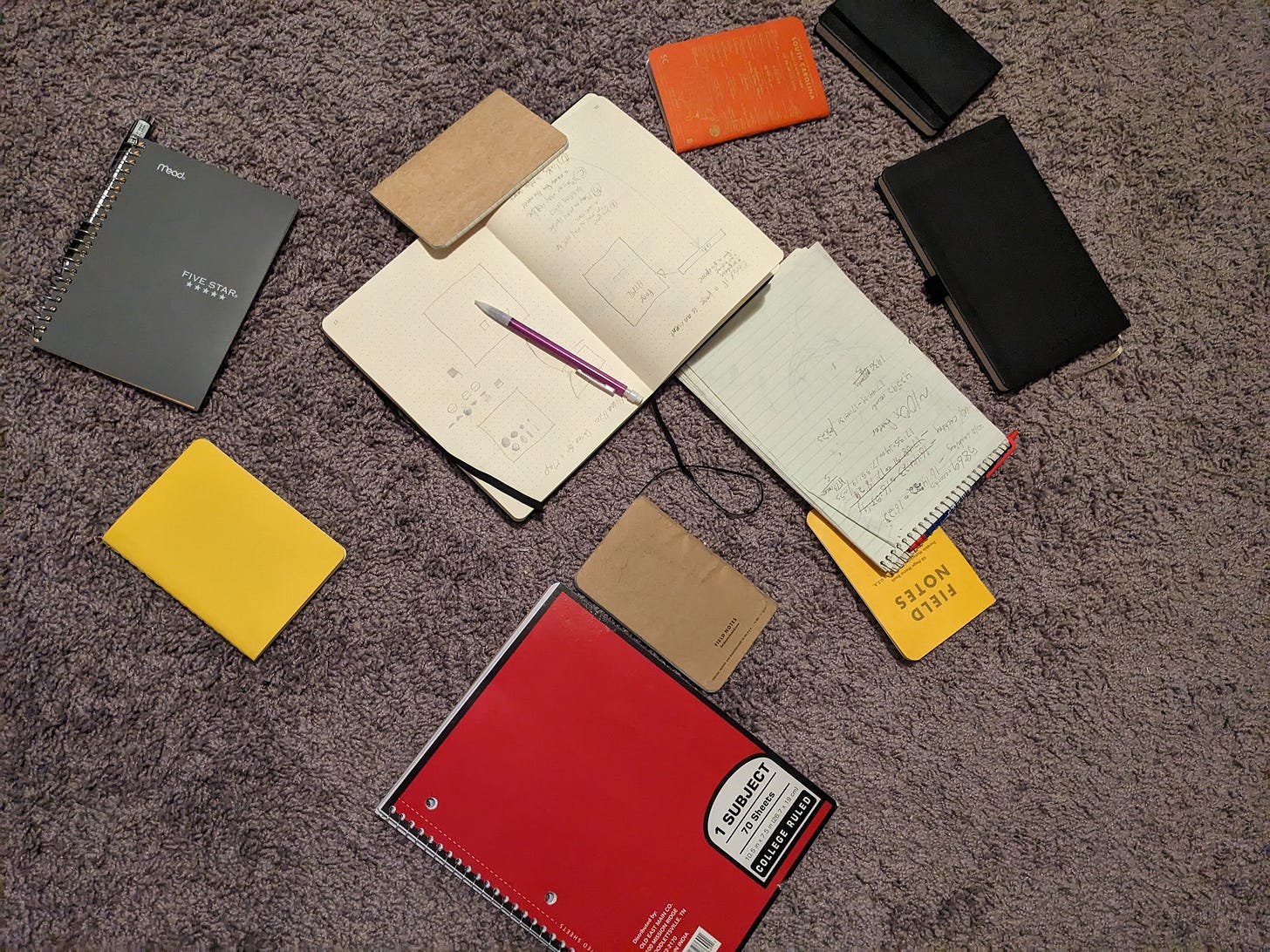There is a rather rote bit of advice that people should “finish what they start.” I could talk about the sunk costs fallacy and opportunity costs, but Freakonomics covered this thoroughly about a decade ago.
Instead I’m going to try to convince you that, you probably shouldn’t finish every personal project you start or even most of them. Instead I’ll advocate a different approach, kill it faster or find the path to iterating in public.
Our menu for this article:
planning fallacy
kill it faster
iterate in public
Planning Fallacy

The planning fallacy is actually quite simple: we are bad at knowing at the start how much work a project is.
We know this in software-land that we are bad at estimating how long a thing will take. It’s because anything large enough to become a project usually has lots of uncertainty and lack of clarity of what will actually be done. We’ve written books on this before.
For the human makers of things, the incompletenesses and inconsistencies of our ideas, become clear only during implementation. - Mythical Man Month
People falsely assume this mistake is made only at the beginning of the project. The planning fallacy is diabolical, though, and shows up continually throughout a project.
How?
People assume (1) that further you get into a project the more confidence you’ll have about the remaining amount of work and (2) the amount of time spent provides some indication of the time remaining.
I can give you an endless number of examples large construction or research projects where people involved said, “All we need is a little more.”
The fact is you probably don’t know how much is remaining on a project for it to be “finished”, especially for your amorphous personal projects.
Kill it faster
I generate a lot of ideas for new projects, articles, stories, apps, whole freaking companies. I have recently moved my trove of notes from Evernote to Obsidian. I have literally hundreds of ideas that I started collecting starting in the mid-2000s. Here’s a sample:
Online store for selling only niche soda
DNS Lookups in Google Sheets
Self-Hosted Kickstarter
Laser-based tree cutters
Various artificial tree aromas to be used with artificial Christmas trees
Book of Dialects for Writers
“Shark Rodeo”
How many of these idea have I acted on? Maybe 1%.
For those that I actually spent more time thinking about, such as Rent-A-Clunker, which was a business for renting vehicles greater than 7 years old. I worked out the idea on a spreadsheet to see if it made any financial sense. And if it didn’t then I’d walk away.
I kill lots of ideas on paper. I work them out to see if they’re plausible, profitable, interesting, useful. And by paper, I mean actual paper.
And even then after working the idea out on paper, I still have a bias towards abandonment instead of action.1 Mostly because I take to heart Pascal’s observation:
We like the chase better than the quarry. — Blaise Pascal, Pensées
Iterate in Public
Once I decide to do something that will see the light of day with a broader audience, I find the most direct path to get the most basic element of the idea done and into the world.
There are a lot of software concepts or metaphors related to this idea, but those tend towards corporate thinking.2 But we’re talking about personal projects—you do not need to go to your boss or the board to green light your idea. You’re in charge here: it’s your audience.
Think of this rather as racing to go public when a new story breaks. You have the barest scrap of information, and you can be like, “it’s a developing story.”
What does that mean?
push up an incomplete codebase on Github
publish a nop package to NPM/PyPI/whatever
throw your half-baked ideas on social media
Why does this public aspect of it matter? People dither waiting until it’s finished when really they mean perfect. There’s an inherent bias in this approach to thinking you only get one shot.
This is a mistake. If you’re making things for others, you don’t need to show your whole hand. You can give parts of the idea out, testing piece by piece. You need the feedback and interaction with the idea.
Find your earliest means to validate the idea—especially when it’s half-baked. You need to iterate in public, not in private.
Quit if you want
Do not feel obligated continue your side project. We have a very limited number of days in our lives. Quit if you want.
On the flip side, if you don’t want to quit, then by all means continue.
I look forward to the marvels you will do.
The Bias to Action is yet another human fallacy that favors doing something (anything) as opposed to nothing.





